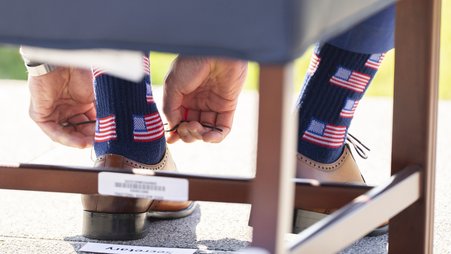
Despite a long history of journalists going undercover to investigate and shed light on secretive industries like the animal agriculture industry, several states have statutes—commonly known as ‘ag gag’ laws—that criminalize reporting on animal abuse at farms. Last Wednesday, a federal judge ruled Iowa’s such law unconstitutional on the grounds that it violates the First Amendment.
The decision was welcome. The ostensible function of ag-gag laws is to protect the animal agriculture industry from public scrutiny, and state lawmakers have barely hid the fact that they have no problem trampling on press freedom rights to pass them.
Just before Iowa’s statute—which threatened undercover journalists or activists who reported on farm activities with up to a year in jail—became law in 2012, several high profile farm investigations put Iowa’s animal agriculture industry in the spotlight. At one farm, a 2011 undercover investigation revealed reports of workers throwing piglets onto the floor. Another investigation exposed farm workers beating pigs with rods, kicking them, and sticking clothespins in their faces.
As the judge in the case described, lawmakers advocated for the bill that would become Iowa’s ‘ag gag’ law, in part, by explicitly arguing it could prevent ‘harms’ that might result from investigative journalism.
Last week’s ruling is only the latest state ag-gag law to be struck down by US courts. In 2017, a federal judge ruled Utah’s equivalent violated the First Amendment. A 9th Circuit Court of Appeals court ruling struck down key parts of an Idaho ‘ag gag’ law earlier last year, and a judge found a Wyoming statue that was highly similar to Iowa’s unconstitutional in October 2018. (Read more about the press freedom implications of ag gag laws here.)
But other states still have such statutes in place that continue to punish undercover investigations—and most of those are states in which the agriculture industry is especially powerful, like North Carolina, Kansas, Missouri, and Arkansas. North Carolina’s sets a civil penalty of $5,000 per day for anyone who records footage on an employer’s property and uses it to “breach the person’s duty of loyalty to the employer.” Violators of Missouri’s law could be subject to up to four years in prison.
Legal challenges to Kansas and North Carolina’s ‘ag gag’ laws are pending.
“These kinds of undercover investigations at factory farms have found sadistic workers kicking pigs in the head, spray painting them in the eyes, stomping and throwing chickens and turkeys like footballs, and smashing piglets’ heads against concrete floors,” Matthew Strugar, one of the attorneys who worked on the Iowa case, told Freedom of the Press Foundation.
“These exposes have drastically changed the public conversation about our treatment of farmed animals,” he added. “So the implications [of this ruling] are that the public will continue to be able to be informed about this cruelty, and, hopefully, the statehouses and agriculture industry will know that they can't get away with passing these unconstitutional laws.”
Strugar emphasized that the ruling has huge implications for journalism, and noted that reporters investigate all sorts of industries besides animal agriculture.
As long as any laws that criminalize undercover investigations are in place, journalists and whistleblowers face huge legal risks for bringing public interest information forward. Ag-gag laws pose a direct threat to journalists’ constitutional rights and until every one of these state laws is struck down or repealed, countless Americans’ First Amendment rights are in serious jeopardy.
The legal challenge to Iowa’s ag gag law was filed in October 2017 by animal rights groups including the Animal Legal Defense Fund, Iowa Citizens for Community Improvement, and People for the Ethical Treatment of Animals (PETA).




